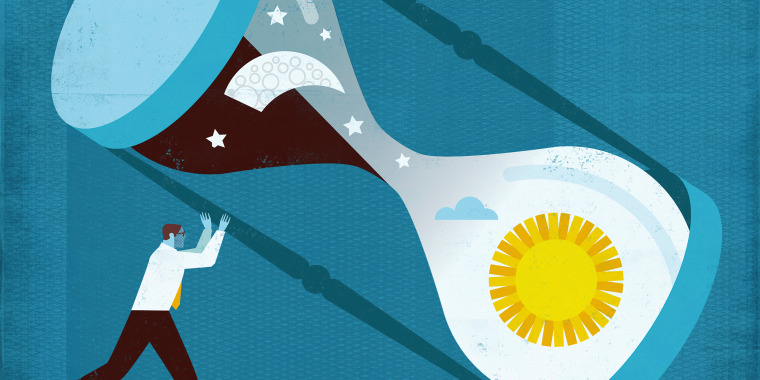
Maybe you have heard of the dichotomy believed to exist in people where some are more alert and productive in the morning and others in the evening. This tendency is often presented as a personality characteristic, genetic or physiological predisposition or differences in circadian rhythms. It has also been assumed it is just a preference or style and has no effect on our health or well-being.
A new study published this week in the journal Chronobiology International, suggests our tendency of being more active in the morning or evening may actually be tied to a number of physical and psychological factors. The study followed half a million adults for six and a half years and found that people who stated they were “definitely evening types” had a 10% increased risk of mortality compared those who identified as "definite morning types." This increased risk of death may operate through a number of associated disorders. In particular, night owls were more likely to suffer from diabetes, neurological disorders, psychological disorders, gastrointestinal disorders and respiratory disorders. It is also important to note that night owls were not just displaying a preference for staying up late, their body clocks and circadian rhythms were actually set to later times.
Once explanation for these findings is that our world is generally designed for early morning starts and this is potentially throwing off the circadian rhythms night owls forced to operate on a schedule that is counter to their internal clock. The results of this study fit with other findings that have demonstrated that people who routinely stay up late are at increased risk of developing diabetes, high blood pressure and certain types of cancer.
The researchers have determined that the problem is not related to a lack of sleep. Both groups got similar amounts of sleep. Instead, lead researcher Knutson, said,
“I think the problem arises because a night owl is trying to live in a morning lark world.. If the body is expecting you to do something at a certain time like sleep or eat and you're doing it at the quote ‘wrong’ time, then your body's physiology may not be working as well.”
Researchers know the body clock is important. For example, forcing the body to change time suddenly can be detrimental. Studies have shown, for example, that switches to and from daylight savings time can increase the risk of death over the next several days. Other studies show that shift workers forced to routinely take drastically different shifts have multiple increased health risks.
The World Health Organization has even stated that shift work likely contributes to the development of cancer, linking it to breast cancer and other types of cancers. Shift work has also been associated with diabetes and severe sleep disorders. Forcing people to work shifts that are opposite to their natural circadian rhythm has also been associated with depression and anxiety as well as social isolation and loss of pleasure in normally enjoyable activities.
These studies taken together make an important point. If you know that you are definitely more active and alert at morning or evening, choose jobs and activities that are consistent with your bodies preference. It is clear that that working against your body’s natural inclination can be harmful to both your physical and mental health. Some strategies proven to help people who want to switch to an earlier schedule include gradually advancing your bedtime and avoiding the use of technology at night. General sleep hygiene strategies are also helpful.
The researchers were careful to emphasize that it isn’t just circadian rhythm tendencies that put someone at risk. It is a mismatch between your internal clock and society that’s the problem. Finding creative ways to take care of your needs, participate in the world around you and while being consistent with your our internal clock is not always easy but it can be done.
References
Abbott, S. M., Knutson, K. L., & Zee, P. C. (2018). Health implications of sleep and circadian rhythm research in 2017. The Lancet Neurology, 17(1), 17-18.
No comments:
Post a Comment